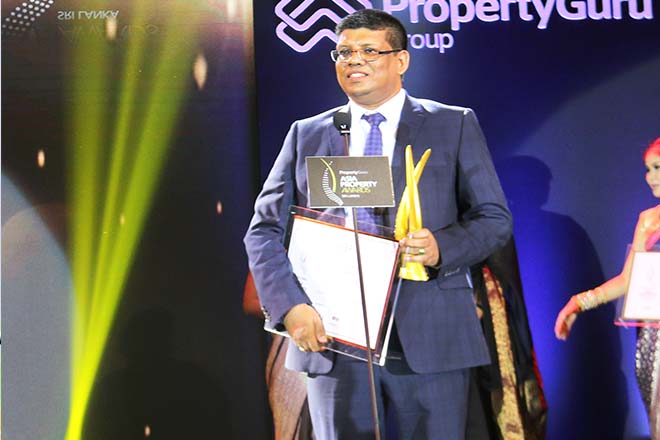Oct 21, 2019 (LBO) - Real estate is one of the Sri Lanka’s major revenue-generating sources. The country’s post-war impressive growth has led this sector to have an increased demand for residential property from the high and middle-income sectors.
The size and scale of the real estate market have always been an attractive and lucrative sector for many investors.
However, times have changed expressively in Sri Lanka that the norm of real estate being a great investment with better returns remains ambiguous with plenty of challenges keeping the real estate industry from achieving its true potential.
A conversation with S. Thumilan, Chairman of Blue Ocean Group of Companies reveals that the internal and external factors faced by Sri Lanka’s real estate developers are quite discouraging yet are also preventable in the long term.
What are the reasons for the undefined market in the past two years?
Real estate has continued to show a significant contribution to Foreign Direct Investments (FDI) brought to the nation in the previous years. Yet, since the beginning of 2019, the property market in the country witnessed a prevalent uncertainty due to multiple overshadowing reasons, one of which is the increase in material cost.
The latest prices paid for materials used in residential construction saw an escalation of almost 60%, terribly affecting developers. Many direct and indirect taxes on apartments that have serious impact on developers too increased suggestively affecting the construction development costs and thereby resulting in a huge drop-out in gaining decent profit margins.
Similarly, the uncertainty of the economic and fiscal policies such as implementation and proposing of various taxes on the industry has let down the investors’ confidence in buying apartments.
The Central bank has imposed sudden rigid economic policies to restrict lending facilities on the real estate and construction sector, which seriously impacts the new developments and decelerates the progress of the existing projects. The banking industry was enjoying huge profits through imposing excessive interest rates in the past two years compelling business activities to slow down.
Moreover, existing investors, including expats investing from overseas markets have lost their confidence due to exchange rate escalation. The depreciation of the rupee has also seriously impacted imports of luxury fittings, building materials, custom duties, and taxes.
Not to mention the October 2018 internal constitutional crisis and the April 2019 tragedy created a political and economic turmoil which lead to the slowdown of the industry as well as the confidence of the economy.
What demonstrable steps should the country take today to fortify developers and brand Sri Lanka as a safer place to invest?
The suddenness of the decline in the real estate market has truly shaken the confidence of many investors. A country’s macroeconomic regulatory policy, especially monetary policy, can have a significant impact on the development of the real estate industry. Therefore, it is important to explore the impact of the monetary policy on the behavior of the real estate market.
As one of the most important aspects of the economy, the monetary policy is utilized by the government to control consumption, investment, and other factors through various transmission channels such as interest rate, asset price, and money supply volume.
In order to revive the industry, the tax rates should be reduced, and intolerable taxes should be eliminated. According to Ajith Nivard Cabraal, former Governor of the Central Bank, the country’s macro-economic fundamentals should be directed so that the tax rates will immediately be slashed by at least 20%. Steps should be taken to reduce the 12% Average Weighted Prime Lending Rate (AWPLR) to about 8% by the end of 2020.
With the erratic exchange rate, real estate developers face many challenges at present. Particularly to the construction companies that import luxury fittings, building materials, and equipment, the exchange rate fluctuation has been a tough encounter since they bear the increased cost allowing existing investors to pay less. It is quite important to take necessary measures to stabilize the exchange rate by encouraging investments and thereby strengthening the rupee against the U.S. Dollar by the end of 2021.
Immediately stabilizing all financial banking institutions of the country and provide liquidity support through the Sri Lanka Deposit Insurance and Liquidity Support Scheme will positively affect not only the real estate market but the country’s economy as a whole.
The economy can be expressively enriched with the initiation of mega infrastructure development projects across the country, suggesting a new momentum that will be vital to revitalize the economy and thereby improve the real estate and construction sect of the country.
Government intervention in the real estate and construction industry can be encouraging or a further source of risk. Developers experience adverse consequences arising from regulatory policy changes designed to curb a perceived bubble.
Nevertheless, we are confident that after the election the new government will form stable economic policies that will be favorable for the real estate and construction industry as well as other local businesses.

